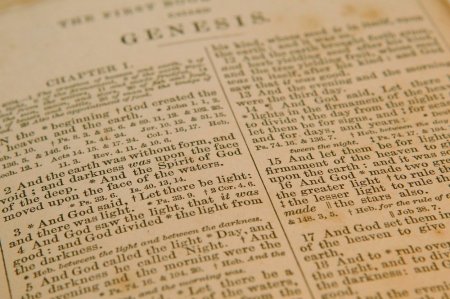The economics of Genesis vs the economics of Marx

David Bahnsen is one of America’s top financial advisers and one of our most prominent economic thought leaders. Recently he joined me on my podcast Meeting of Minds to discuss the origins of modern economic theory, how genesis responds to Marx, and his newest book There's No Free Lunch: 250 Economic Truths. To listen to the full podcast, click below.
Here are a few highlights from that discussion, lightly edited for clarity and length:
Jerry: Last time we spoke, you talked about what Genesis 1 has to say about the old controversies of labor theory of value, and of subjective utility, which is the foundation of Austrian economic theory.
David: I think that we’ll back up into Genesis 1 but by historical precedent. In classical economics, Adam Smith loosely wrote. It wasn’t exhaustive, it wasn't systematic, but he loosely wrote in a way that even Marx credited Smith with some of this concept of value coming from the labor that is put into it. And David Ricardo, a 19th century classical economist, also heavily influenced by the 18th century Adam Smith, elaborated on this labor theory of value and believed that there was a product or a good and that then labor was added to it, and the end result was the value of the product. The cost of raw materials, plus the labor imputed, equaled the value of the product. It’s very hard for me, Jerry, to believe that these men believed this, because they were so intelligent, had so much value, have done so much to inform my understanding of economics and of philosophy. And yet, you and I know intuitively that if someone comes to your house with a table that they worked on for 1,000 hours and we just think the tables ugly, we probably wouldn't give them 20 bucks for it. The notion that they imputed significant amounts of Labor does nothing to our appetite for ascribing it value.
Why is this dangerous? Because Marx took the classical concept of labor theory from Smith, Ricardo (and by the way, there was some precedent for this even in Thomas Aquinas) and Marx said, well, this is dehumanizing to the laborer to have the value they’re imputing to the product be removed from the laborer and given to the capitalist, who is then essentially stripping the laborer of his dignity because he's removing value from what belonged to him. Why is this a problem economically? Because it was never true, that value is connected to the labor added to it. And this is now full circle back to Genesis 1. To what Carl Menger, a lot of the Austrian School, and really most economists today outside of Marxland agree with - that value is subjective, that producers and consumers come together and through a process of price discovery we find value and it reflects the taste and appetites and needs of time and place market conditions.
Where did this idea that that one person just might not like a table and another person really believes this table is beautiful come from? I think it came from our nature. And what is our nature? It was that given to us by our Creator. He created us in His image. And how did God Himself, declare value? Did he quantify it? Did he mark up his labor that he put into creation? Did he create a spreadsheet? Or rather, did he declare? “It is good.” It is good, about the Sun, the moon, the stars, each day of creation. He subjectively projected value. And now we as His creation and His Image do the same.
Jerry: Wow, theory matters. You might think it's some arcane little thing, but get that wrong and you’re going to end up with is the absurd conclusion that all profit is theft. And since a great deal of private property comes about from profit, then private property is theft. You just make those few intellectual mistakes and 100 million people die.
David: That's exactly right. And then on the inverse, to bring it back to the positive side, theory matters and ideas have consequences. Carl Menger into Von Mises and into Friedrich Hayek, there did become a 20th century counteract to both the hardcore central planning that we call Marxism and soft core central planning that we'd call Keynesianism. Keynes became academically respectable. It did not have bloodshed attached to it, but it was committed to the notion of the central planner and it required a philosophical refutation: Hayek came around with price discovery, with the knowledge problem, with the fatal conceit, and you got this intellectual battle that is played out.
Yet one thing was missing from it for people like you and me, the leading truth tellers were not Christians. The Christian church was absent from the great economic debate of the 20th century, so I won't take away anything thing that in common grace Milton Friedman, Friedrich Hayek or Ludwig von Mises contributed to 20th century dialogue. Thank God they were there to participate in the great intellectual journey of counteracting that I think was the very misbegotten economic theory of Keynes.
Jerry Bowyer is financial economist, president of Bowyer Research, and author of “The Maker Versus the Takers: What Jesus Really Said About Social Justice and Economics.”






















